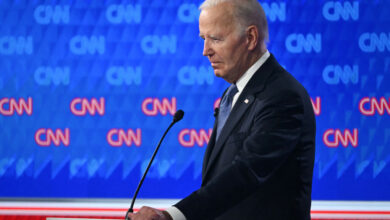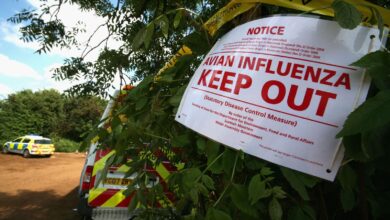Suicide Hotline Left Ethics Board Out Of The Loop About Data-Sharing With For-Profit Spinoff

Knowledge from Disaster Textual content Line customers was anonymized and used to coach machine studying algorithms.
getty
Medical specialists recruited to advise Disaster Textual content Line say they weren’t consulted about its knowledge sharing and voiced objection to the association. “This may by no means have handed a sniff take a look at,” one says.
Five years after a prime suicide prevention hotline received off the bottom, it spun out a for-profit arm, partly to assist preserve its lights on.
The group, Disaster Textual content Line, offers around-the-clock assist by way of textual content messaging for folks combating psychological well being emergencies together with ideas of suicide. The then-fledgling nonprofit determined it could acquire and anonymize knowledge from its textual content conversations with folks in disaster and share that info with its for-profit spinoff, Loris.ai, to assist it construct and promote customer support software program. Disaster Textual content Line was then Loris’ majority shareholder, and the plan was for Loris to ultimately share a few of its income with the nonprofit.
Disaster Textual content Line began as the fervour mission of a tech entrepreneur with close ties to Silicon Valley and backing from a few of its best-known founders and billionaires. The nonprofit would additionally strike partnerships with Meta and Google — a few of the strongest firms on the planet that additionally helped pioneer the gathering and promoting of people’ private info as a regular solution to generate income.
It’s maybe no shock, then, that Disaster Textual content Line’s Loris spinoff, fashioned in 2018, was supported by the tech trade and extensively applauded in tech publications from the Bay Area to New York, the place the nonprofit relies. And in opposition to the backdrop of Silicon Valley, the place knowledge sharing had turn into the norm, it additionally could not have occurred to Disaster Textual content Line that some would possibly view what it was doing as improper.
So when a January report by Politico known as consideration to the data-sharing relationship — prompting outrage from members of Congress, a federal regulator, privateness and ethics specialists and others — Disaster Textual content Line emphasised that it had lengthy been open and public about Loris. It had laid out the association in a 2018 blog post and in its privateness coverage, and basic counsel Shawn Rodriguez advised Politico it was “ethically sound.” Many disagreed, objecting to the entities making any business use of information, even when anonymized, from the conversations of individuals in misery.
The backlash in the end compelled Disaster Textual content Line to stop data-sharing with the corporate it had created years earlier with little pushback. However had the group consulted its personal knowledge ethics advisory board, it could have been in a position to serve its personal mission otherwise.
Megan Ranney, an emergency room physician, tutorial dean for Brown College’s Faculty of Public Well being and herself a member of Disaster Textual content Line’s ethics advisory board, known as the nonprofit’s sharing of information with its for-profit subsidiary “a poor choice on a number of ranges.”
“It was not an unlawful choice; it was simply not a choice that I might have ever suggested anybody to make,” she advised Forbes. “It’s nothing that I might have wished to be related to.”
Disaster Textual content Line’s Knowledge, Ethics, and Analysis Board as seen on their web site on Feb 2, 2022. The names have since been faraway from the positioning.
Screenshot
The advisory board that wasn’t
Crisis Textual content Line assembled an information, ethics and analysis advisory board in 2015 to, within the phrases of its own website, “advise us on knowledge privateness and safety.” It was a who’s who of prime lecturers and medical specialists affiliated with Ivy League universities and prestigious well being establishments just like the Kaiser Household Basis. Their names and titles had been featured prominently on Disaster Textual content Line’s web site as not too long ago as this month.
But the ethics board was not consulted on the group’s choice to share delicate knowledge from folks’s darkest moments with its for-profit spinoff, members of the board say. Some members advised Forbes they didn’t know in regards to the data-sharing association and that the committee itself hadn’t been convened in years. And considered one of its members, whose identify was listed on the group’s web site till this month, died a yr in the past.
“We’re all profoundly disenchanted that we weren’t engaged at any level in discussions about Loris — like, actually at any level,” Ranney says. “This seems like a betrayal of the belief of the parents that used Disaster Textual content Line,” she provides. “It is also a betrayal of the belief of these of us that had been prepared to lend our identify and our experience to the group.”
Inside a couple of day of Forbes contacting ethics board members in February, their names and titles had been faraway from Disaster Textual content Line’s web site. One of many names that had remained on the positioning’s ethics board record till this month was that of Dr. Robert J. Levine of the Yale Faculty of Medication, who died last February.
Disaster Textual content Line advised Forbes in an emailed assertion that advisory board members present steering “on a periodic foundation.” Requested when the committee had final met, Disaster Textual content Line didn’t reply.
“Within the nonprofit sector, advisory board members supply recommendation and opinions with out governing energy or accountability,” the e-mail stated. Requested why Disaster Textual content Line had not, within the phrases of members of its knowledge ethics board, been engaged in discussions about its data-sharing with Loris, it didn’t reply instantly. As a substitute, it emphasised that “the first objective of assembling the info, ethics and analysis advisory group was to hunt recommendation on the design of the group’s tutorial analysis collaboration program.”
Disaster Textual content Line’s CEO is Dena Trujillo. Loris CEO Etie Hertz didn’t reply to a request for remark. Some members of the info ethics committee didn’t reply to a number of requests for remark or declined to take action.
Eric Perakslis, the chief science and digital officer on the Duke Medical Analysis Institute, says that whereas Disaster Textual content Line is on no account obligated to make use of the specialists they’d assembled, the Loris case is one the place “they actually would have benefited from using that.” Perakslis went on to explain Disaster Textual content Line’s relationship with its advisory board to this point as doable “window dressing theater.”
“I might argue that this [organization] could be thought-about responsible of that, even when it was completed unintentionally,” he advised Forbes, by having the names of “these actually, actually sensible, actually educated individuals who they weren’t together with in enterprise choices — in fairly frankly, enterprise choices that completely horrify numerous these folks now that they understand what they had been.”
Final month, days after publication of the Politico report, Disaster Textual content Line introduced that it had ended its data-sharing with Loris and would ask the for-profit entity to delete the anonymized knowledge it had been given by the disaster intervention hotline. “Throughout these previous days, now we have listened intently to our neighborhood’s considerations,” the hotline stated in a statement posted on its web site. “We perceive that you just don’t need Disaster Textual content Line to share any knowledge with Loris.”
Microsoft researcher and Disaster Textual content Line board member danah boyd that very same day shared a personal blog post to Twitter (“not the angle of the group or the board”) about how the Loris data-sharing team-up had given her pause. “I struggled with this choice on the time and ever since. … This choice weighed closely on me, however I did vote in favor of it,” she wrote. “Understanding what I do know now, I might not have.”
Late Wednesday, Disaster Textual content Line despatched a observe up electronic mail to Forbes saying that “we’re extremely grateful to our advisors and the experience they’ve supplied so we will frequently turn into a greater and stronger group that helps an rising variety of folks in want.” The group added that “we’re dedicated to reconstituting our advisory teams and meaningfully participating our advisors extra persistently going ahead.”
Disaster Textual content Line cofounder Nancy Lublin
Getty Photos
The nonprofit, for-profit team-up
Crisis Textual content Line and Loris shared the identical CEO, Costume for Success founder Nancy Lublin, for at the least a yr and a half. Till this month, Loris’ web site described its relationship with Disaster Textual content Line as “a blueprint for methods for-profit firms can infuse social good into their tradition and operations, and for nonprofits to prosper.”
Anonymized knowledge the hotline had collected from its textual content conversations with folks in disaster grew to become an vital device towards that objective. Disaster Textual content Line, which has grown quickly on each side of the Atlantic, says it wields “the most important psychological well being knowledge set on the earth.” In an April 2021 press launch, Loris said that insights gleaned from practically 200 million of Disaster Textual content Line’s messages had helped the corporate develop AI-powered customer support instruments which can be aimed toward helping customer support brokers in stay chats with upset clients.
Loris’ “AI assistant” plugs into platforms like Zendesk, Salesforce and Twilio to assist coach firms’ customer support reps by way of robust conversations and de-escalate disputes — decoding language within the chats and offering real-time suggestions on how an agent can reply. The AI was skilled partly by analyzing Disaster Textual content Line methods and troves of its anonymized knowledge, a reality Loris has touted in advertising and marketing as its “proprietary edge.”
“We make the most of our intensive expertise working by way of essentially the most difficult conversations within the disaster house to create a machine-learning primarily based software program platform that helps firms deal with their arduous buyer conversations with empathy,” Loris says on its LinkedIn page. “By means of hundreds of thousands of conversations with folks in excessive disaster conditions, this strategy has confirmed to result in persistently optimistic outcomes that are actually being utilized to the enterprise area.”
Disaster Textual content Line advised Politico that the 2 entities had been “mission-aligned” — that it seen the connection as “a worthwhile solution to put extra empathy into the world” — and wrote on its web site that it founded Loris “to leverage the teachings realized from working our service to make buyer assist extra human.”
“Merely put,” Disaster Textual content Line stated of the Loris association in 2018, “why promote t-shirts when you possibly can promote the factor your group does finest?”
Disaster Textual content Line’s data-sharing with Loris was authorized, and it was additionally disclosed within the hotline’s phrases of service, which texters obtain a hyperlink to once they attain out for assist. (“By texting additional with us, you conform to our Phrases,” says the primary, automated message.)
“Somebody searching for assist in a disaster should not have to fret about their knowledge being offered for an enormous company’s revenue.”
But unbiased privateness and ethics specialists expressed considerations. Some argued that Disaster Textual content Line could not have gotten significant consent from texters — who they stated had been unlikely to learn some 50 paragraphs of disclosures within the midst of an emergency — and that making business use of this explicit knowledge, even when anonymized, was improper. (Disaster Textual content Line’s basic counsel, Shawn Rodriguez, advised Politico that “delicate knowledge from conversations is just not commercialized, full cease.”) Though it’s frequent for medical knowledge to be anonymized and put to make use of, specialists stated that’s usually for analysis functions or to enhance take care of sufferers, and that non-medical use of the info by a for-profit firm was uncommon.
Regulators and politicians additionally raised objections to this knowledge sharing observe. Federal Communications Commissioner Brendan Carr was amongst those that spoke out in opposition to the nonprofit’s “data-sharing and monetization practices” after the preliminary report in Politico. Carr took to Twitter to demand that Disaster Textual content Line and its for-profit spinoff finish their “disturbingly dystopian” sharing of delicate psychological well being knowledge. And although he welcomed their eventual choice to stop data-sharing, Carr stated in an electronic mail to Forbes final week that “questions stay concerning their present practices” and that in consequence, “my workplace is constant to fulfill with Disaster Textual content Line management to make sure that its knowledge practices adjust to the regulation.” Members of his workers met with Disaster Textual content Line leaders final week to look at their practices extra intently, and Carr himself will attend one other assembly on the matter in March. Members of Congress, together with Democratic Senator Kirsten Gillibrand of New York, have additionally condemned the data-sharing, writing on Twitter that “somebody searching for assist in a disaster should not have to fret about their knowledge being offered.”
Among the identical considerations had been later raised by members of the ethics board.
“Knowledge-sharing with a for-profit firm? That is dangerous… and you may’t get consent from folks for that within the second once they’re signing up with [a] disaster,” Ranney says. “This may by no means have handed a sniff take a look at.”
Members of the ethics board additionally stated they’d not been consulted on Disaster Textual content Line’s response to outcry after the Politico story was revealed. Disaster Textual content Line put out a statement on Twitter emphasizing that “specialists within the fields of information and psychological well being have praised our knowledge ethics, insurance policies and practices” and pointing to “main lecturers” who’d validated Disaster Textual content Line’s “moral knowledge sharing” by way of a study published in the Journal of Medical Internet Research in 2019. (Greater than half of the authors of that paper, which centered on data-sharing with tutorial researchers relatively than with Loris, had been members of Disaster Textual content Line’s knowledge ethics advisory board.)
“There was by no means any dialogue of sharing knowledge with a for-profit entity — like zero ever, nothing.”
That response drew fireplace from specialists in know-how ethics.
“What bothers me most about this assertion is that, along with not addressing the core concern about for-profit knowledge sharing, it implies (seemingly inaccurately) that this observe has been externally vetted,” Casey Fiesler, an assistant professor on tech ethics and web regulation on the College of Colorado, Boulder, responded on Twitter.
Ranney, an creator of the article, says the nonprofit’s protection of its actions had taken their analysis out of context.
“There was by no means any dialogue of sharing knowledge with a for-profit entity — like zero ever, nothing,” she advised Forbes. She says tutorial researchers’ entry to knowledge in a restrictive, privacy-protected setting, for the good thing about Disaster Textual content Line’s inhabitants, “is on no account, form or type the identical factor as offering unfettered entry to knowledge for a for-profit firm.” (Disaster Textual content Line stated Loris didn’t have open-ended entry to its knowledge and had advised Politico that such sharing would possibly happen each few months. The group said later that Loris had not accessed any knowledge because the starting of 2020.)
Ranney stated she and others on the advisory board nonetheless “imagine strongly” within the worth of Disaster Textual content Line and its unique mission to assist folks. The pandemic has intensified the necessity for psychological well being providers, and the group “performs a critically vital position” in serving to to fulfill that demand, she stated. “The query is: was this a mistake that they’re now in good religion going to handle?”




